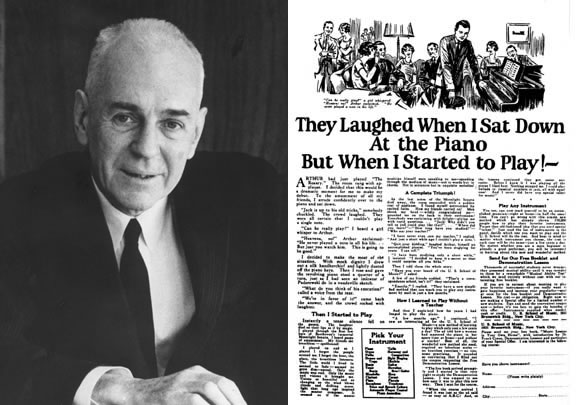Featured
Posted by Ian Brodie on July 5th, 2012.
Ian Brodie on July 5th, 2012.

Exclusive Bonus: the very best way to establish yourself as a trusted advisor to your senior clients is using a
Value-Based Marketing strategy. To download your free step-by-step blueprint to implementing Value-Based Marketing and get FREE access to the Fast Start videos that will get you up and running and generating leads and clients fast,
click here.
It's the holy grail of Professional Services – to become a trusted business advisor to your senior clients. To be viewed – and sought out – as a source of valued advice and support.
The benefits are crystal clear: if you're the first port of call for a client with a critical business problem then you're in a tremendous position to help shape that client's thinking, to build a deep understanding of the situation, and to establish strong credibility through the discussions.
In other words, you'll be in pole position to win any related work.
And if you’ve established a position of being able to help and offer good advice across a broad range of issues – not just in your own specialism – then you become an indispensable partner – not just a supplier.
But becoming a trusted advisor doesn’t happen overnight.
The position’s got to be earned – and that takes time and it takes consistent action.
How To Become a Trusted Advisor
The clues to what to focus on are in the name – trusted advisor.
You must establish both a trust-based relationship with your client; and you must be viewed as a source of valuable advice.
Building trust comes from demonstrating and proving trustworthiness over time to your clients.
That means repeatedly demonstrating that you understand them, you have their best interests at heart, and you'll deal with them with candour: always being honest about what you can and cannot do, and taking a long term perspective rather than seeing them as a short-term sales prospect.
And that starts even before they become clients. How you treat them when they're prospects sends a strong message about how you'll treat them when they're a client.
When the Huthwaite Group studied client’s perceptions of professional service salespeople, they found that of the key elements of trust (in their words: candour, competence and concern) it was the area of showing concern and empathy for their clients where professionals performed the worst.
Much worse that their counterparts in product sales.
Accountants, lawyers and consultants are trained “to be professional”. To be objective, fact-driven and solution focused. We've been conditioned into feeling we must constantly demonstrate our cleverness and expertise in order to be credible.
But all of this mitigates against showing genuine human concern for clients and their challenges.
It’s not that we don’t care about our clients – far from it. But we've got to learn to express this concern in ways which clients can appreciate.
Using our listening skills, for example, not to gather ammunition for our next verbal gem – but to build genuine and deep understanding of a client’s situation.
And when it comes to demonstrating that you can provide valuable advice, again you've got to do this consistently over time. Every interaction with your senior clients is a chance to either advance their perception of you as a source of valuable insight…or not.
Now that doesn't mean that a junior consultant or lawyer should try to jump right in and spout their “wisdom” to senior clients on day 1.
You've got to “earn your spurs” first. You have to earn the basic right to be listened to by your senior clients.
You do this by demonstrating competence in the areas you've been hired for. Until you've done this, any attempts to advise on wider areas are going to fall on deaf ears. You need to prove your basic capabilities first.
Or as a grey-haired consultant told me on one of my early projects when I was trying far too hard to “add value” on a whole bunch of topics: “Ian, you've got to get your own sh*t sorted first”.
So that's your starting point.
But unfortunately, many professionals stop there.
They limit their interactions with clients to talking about the work at hand and the specialism they focus on.
Over time, this causes them to be pigeon-holed as just being technical specialists. People who can be relied on to deal with specific topics – but not a trusted advisor who can help with more challenging problems.
To establish your trusted advisor status you've got to demonstrate you can give valuable advice outside your specialism. You need to show you have broader knowledge of business in general, and of the client’s business and industry specifically.
That means you've got to do your homework.
As a professional you need to know the key issues of the day. In business and industry generally. In your client’s industry more specifically. And if you can, in your client’s company.
As you get closer and closer to your client, they’ll also begin to share issues that are personal to them and their role. But at the start, it’s the more general industry and company issues you should focus on.
Always make sure you’re up to date with industry news – and ask the client about their opinions. Put out tentative hypotheses to gently establish the fact that you’ve been thinking about their industry and their company. Highlight a recent move a competitor made and ask them how effective they feel it was – and be prepared to give your views too.
Use the smalltalk at the start and end of meetings to cover these relationship-building topics rather than jumping straight in to talk about the job at hand.
Or invite your client out for a coffee next time you do a progress update. A change of scenery to a more casual environment often helps clients open up more broadly about the things on their mind.
Don’t push this too far, too early though.
I’ve seen many junior consultants and aspiring partners rush far too fast into trying to “coach” senior clients long before they've earned the right.
Instead, recognise where you are in your relationship.
- Have I established my basic competence?
- Have I created an impression of strong general business knowledge?
- Have I demonstrated useful insights into key business problems?
Look at the development of your relationship as a ladder you climb step-by-step. And hand-in-hand with your client at every step of the way.
In the early days, ask about issues just a bit wider in their organisation. Or things that are big news and everyone is talking about.
As your relationship develops you can move on to broader and bigger topics. But always do your homework so you have an interesting point of view to share.
Do this and you will set yourself well apart from the vast majority of consultants and other professionals.
Do it really well, and you’ll find that the clients you develop your trusted advisor roles with will support you for many, many years.



 Danny Iny is a fast rising star in the world of marketing and has rapidly established himself as a leading authority on marketing for small businesses.
Danny Iny is a fast rising star in the world of marketing and has rapidly established himself as a leading authority on marketing for small businesses. I was chatting last night to a smart marketer who was asking me about an effective sales process for high value services.
I was chatting last night to a smart marketer who was asking me about an effective sales process for high value services.




 Geoff Ramm is the UK's leading speaker on Marketing. He's been travelling the world blending observational humour with sharp marketing insights for a decade now. And he stopped off to chat to me about how he built his reputation.
Geoff Ramm is the UK's leading speaker on Marketing. He's been travelling the world blending observational humour with sharp marketing insights for a decade now. And he stopped off to chat to me about how he built his reputation. Last week I sent out an email that had the worst open rate I've had for an email ever.
Last week I sent out an email that had the worst open rate I've had for an email ever.